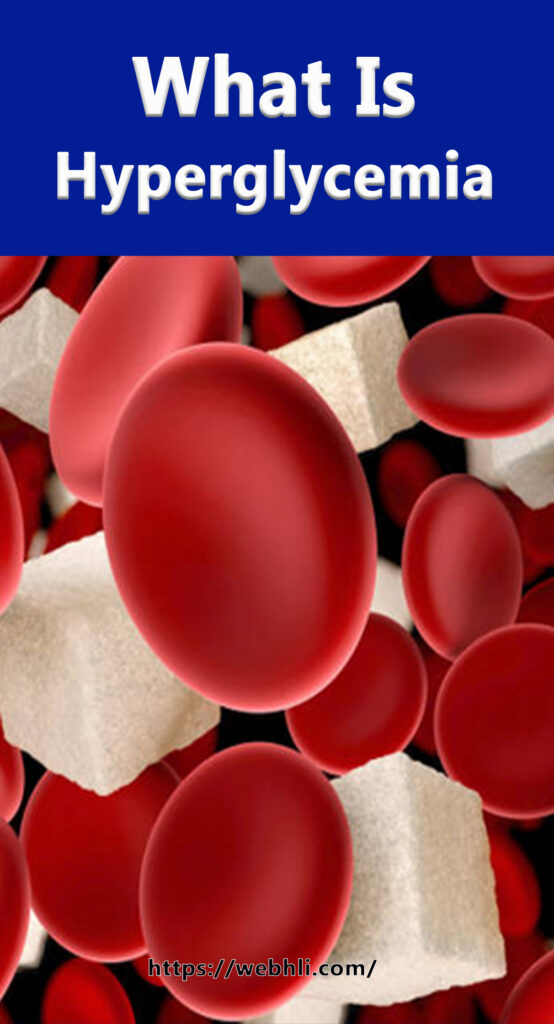
Hyperglycemia is the state of having a blood glucose level which is higher. A subject with a consistent range above 126 mg/dl or 7 mmol/l is generally held to have hyperglycemia, whereas a consistent range below 70 mg/dl or 4 mmol/l is considered hypoglycemic. The blood glucose levels of a person vary on different times of the day and before and after meal. Hyperglycemia may occur to persons with undiagnosed diabetes. This can also occur if the person with diabetes failed to comply with his or her treatment well. Hyperglycemia can produce different symptoms.
The three classic symptoms of hyperglycemia are frequent urination, frequent hunger and frequent thirst. Several other symptoms may manifest like blurred vision, poor wound healing, dry mouth, fatigue and others. The symptoms may not become noticeable until the blood glucose level reaches 15-20 mmol/l (270-360 mg/dl) or higher. The blood glucose level which is slightly higher than normal can still cause damages in the long run.
Check out these related articles, too:
What is the biggest contributor to diabetes?
Diabetes and Higher Than Normal Fasting Blood Sugar Levels
How to Lower Blood Sugar Naturally
Using a Diabetic Blood Sugar Level Chart How to Know If You're in a Normal Range
Are Low Carb Diets Good For Diabetics
Diabetes Food List Healthy Eating for Type 2 Diabetes
Essential Travel Tips For All Diabetics
Green Smoothies For Diabetes Using Raw Food To Help Diabetes
The blood glucose level must be kept normal. The equilibrium plays an important role in the efficiency of the body in performing its physiological process. Changes in the blood glucose level, whether it elevates or drops, can affect the processes of the body. This can also cause damages. Hyperglycemia can damage the kidneys and the retina. It can also cause cardiovascular damages. This condition can be caused by several conditions such diabetes mellitus, physiological stress, critical illness or some drugs. The treatment for hyperglycemia is directed on the underlying cause. For persons with diabetes, it is very crucial to comply with the treatment. They also have to watch their diet and lifestyle. It is also essential to check the blood glucose level regularly. If the symptoms of hyperglycemia manifested it is highly encouraged to consult a doctor immediately. This is to gain an precise diagnosis of the condition and to determine the right treatment. This is also to prevent the complications from progressing.
Persons with hyperglycemia must work to promote their health. They must consume nutritious foods but the doctor may suggest a calorie plan. This calorie plan limits the amount of calories that a person must consume. This is to make certain that the person is not consuming amounts of glucose which are more than what the insulin could utilize. This is usually given to persons with diabetes. However, since hyperglycemia can be caused by different conditions the treatment for it is directed to the underlying cause. The person has the to responsibility to comply with the treatment and follow the orders of his or her attending physician. Poor compliance with the treatment can cause problems. The person must also avoiding unhealthy habits. He or she should modify his or her diet and lifestyle. If a person who has hyperglycemia must tell his or her doctor if he or she is smoking or drinking. He or she must also tell the doctor if he or she is taking medications other than those that the doctor prescribed.
Hyperglycemia can cause several damages. So it is important to know what hyperglycemia is, its symptoms and its treatment. And finally, if you are interested in hyperglycemia symptoms, check out the hyperglycemia symptoms [http://www.hyperglycemiasymptomscenter.com/]
Article Source: http://EzineArticles.com/6694073



 Protected by Patchstack
Protected by Patchstack